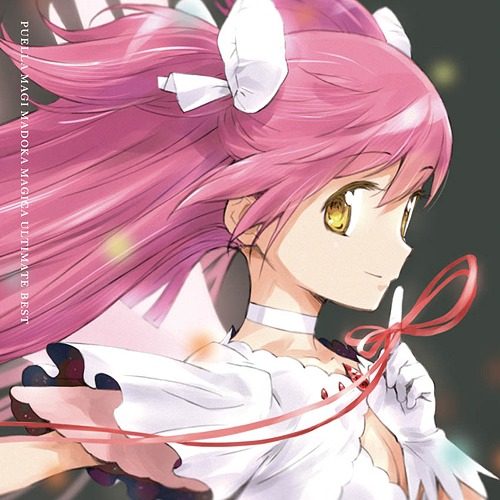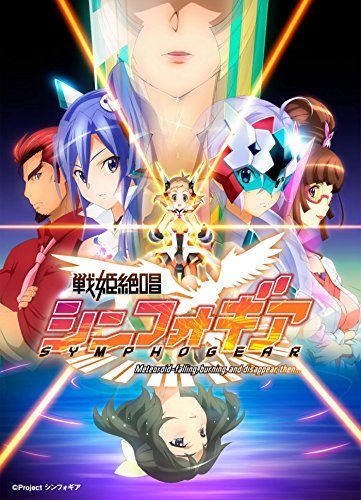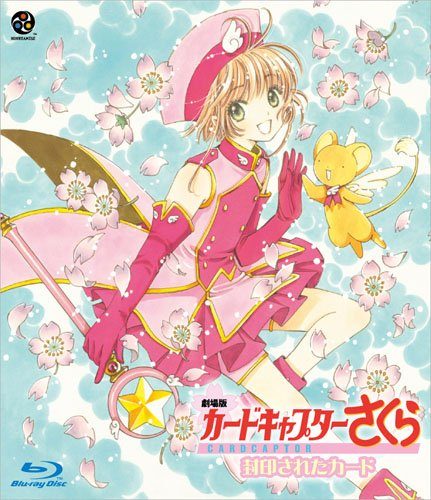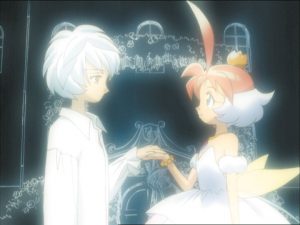
In Part 1 of this series, we took a brief look at how mahou shoujo (magical girl) anime grew from its cutesy, harmless origins into a full-fledged genre about realistic girls who kick ass and control their own destinies. But even though certain anime like Mai-HiME (2004) and Heartcatch Precure (2010) incorporated some very dark subject matter, it wasn’t until the release of Mahou Shoujo Madoka Magica (2011) that the magical girl genre got its big gut-punch deconstruction.
--Spoilers Ahead!--
Frilly Dresses and Cosmic Horror
Mahou Shoujo Madoka Magica is an original anime produced by Shaft and written by Gen Urobuchi. It seems like a normal upbeat magical girl anime, albeit one with some creepy vibes and a deeply unsettling art style for its “witch” villains. That is, until its third episode, when one of the main characters is brutally murdered in front of her friends. Wait a minute – Gen Urobuchi wrote this? Isn’t that the guy who wrote Fate/Zero and got the nickname “Urobutcher” for killing so many of his characters?
Yes—Madoka Magica is actually a deeply tragic tale about what happens when young girls are entrusted with the fate of the world. In a similar vein to Shin Seiki Evangelion (1995), it tears apart its own genre by turning a harshly realistic lens on its own conventions and imagining the worst possibilities that could come from giving 13-year-olds magic powers and forcing them to fight evil over and over. The girls get traumatized and burnt out from their endless battles, death is a very real possibility (and not always at the hands of a witch), and the seemingly helpful mascot character has anything but the protagonist’s best interests in mind.
The anime’s combination of cute character designs and rattling genre deconstruction made it hugely popular both in Japan and around the world. Would the mahou shoujo genre ever be the same? Let’s see what came next.
Where We Went From There

The next year brought about the release of Senki Zesshou Symphogear (2012), which took some of the dark themes of Madoka Magica and combined them with the dramatic mecha and idol elements of the Macross series (1982). It certainly had its own identity, though—idol singers fighting in powered armor that they need to sing to activate, all within a tense narrative about grief and betrayal—so it managed to ride the hype without being labeled a rip-off. It’s up to four seasons now, with a fifth scheduled for 2019.
Genei wo Kakeru Taiyou (2013), translated as Day Break Illusion, unfortunately, wasn’t so lucky. It went for a similar “magical girls, but with death and heartbreak” angle, but didn’t spend much time developing its characters or their relationships with one another. As a result, the darker moments rang hollow for many viewers and it failed to push the genre farther forward.
Other mahou shoujo anime in recent years have taken inspiration from Madoka Magica and deconstructed the genre in their own ways with varying degrees of success. Kill la Kill (2013) amped up the violence and sexuality to intentionally ridiculous levels while still having grounded arcs for its characters, Yuuki Yuuna wa Yuusha de Aru (2014) took an introspective look at what it really means to be a hero, and Mahou Shoujo Ikusei Keikaku (2016) threw innocent magical girls into a death tournament.
And, of course, anime like the Precure franchise and Cardcaptor Sakura: Clear Card-hen (2016) continue to fly the flag for cheerful mahou shoujo meant for kids. But both of those shows originated before 2011. After Madoka Magica, will we ever see a new magical girl series that plays the traditional conventions completely straight? Will it alter the landscape as much as Evangelion did for the mecha genre? Only time will tell.
Final Thoughts

From Bewitched to Cutey Honey to Madoka Magica and beyond, the mahou shoujo genre has changed drastically over its 50 years of existence. We’d love to see where it goes next!
How did you like our look back at the magical girl genre? What’s your favorite magical girl anime? Are there any that we forgot? Let us know in the comments, and thanks so much for reading!


